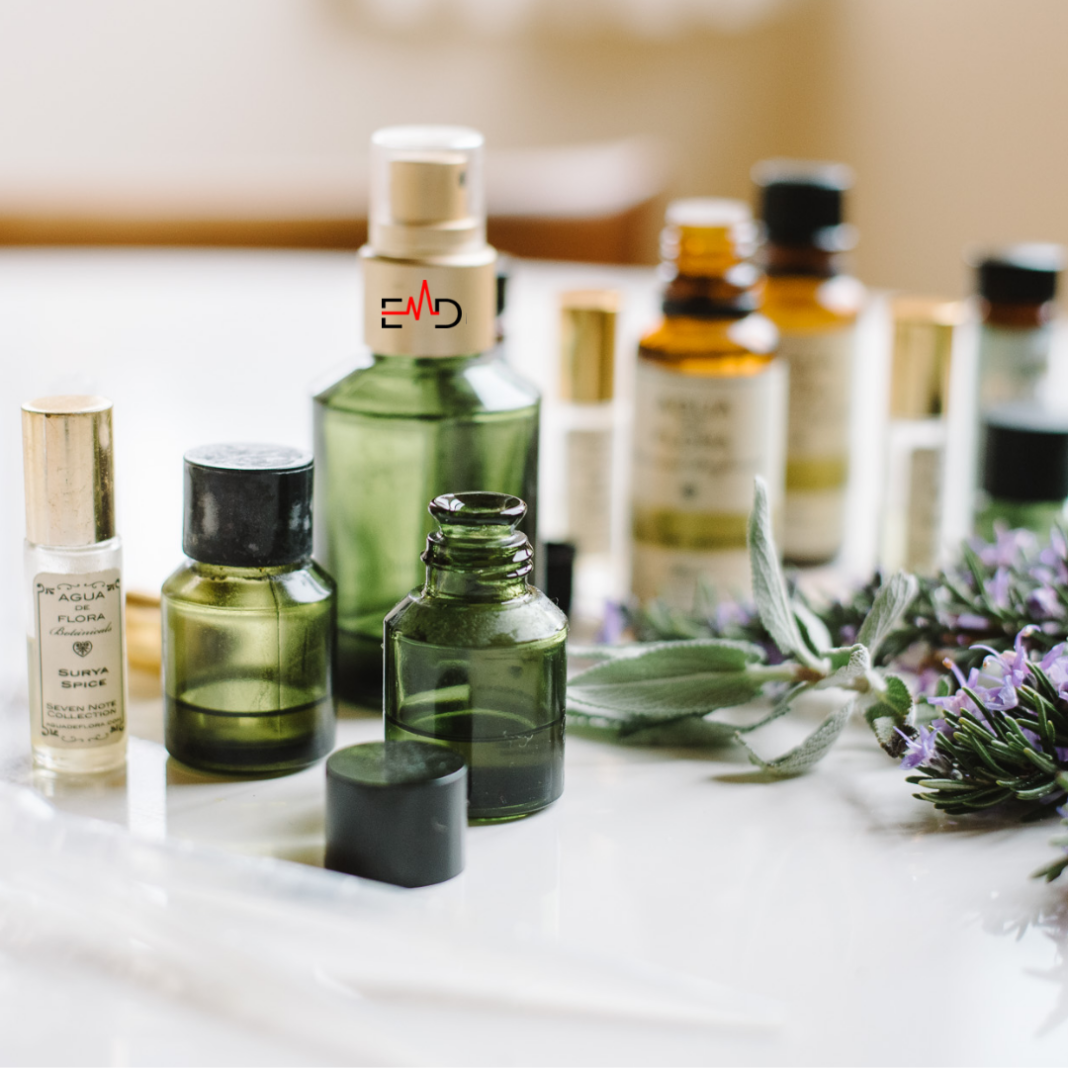Exercise Daily – Aromatherapy is a holistic healing practice that utilizes the natural essences of plants, known as essential oils, to promote physical, mental, and emotional well-being. With its roots dating back thousands of years, aromatherapy has gained popularity as a natural and complementary therapy. Let’s explore the world of essential oils, their benefits, and how they can be used for common ailments and natural remedies.
What is aromatherapy?
Aromatherapy uses essential oils derived from plants to enhance physical and psychological well-being. It involves the inhalation or topical application of these oils, which are believed to have therapeutic properties. Aromatherapy is often used with other therapies and is known for its relaxing and rejuvenating effects.
The use of essential oils in aromatherapy
Essential oils are highly concentrated plant extracts obtained through various methods such as steam distillation, cold-press extraction, or solvent extraction. These oils capture the aromatic compounds of plants and contain their characteristic fragrance and therapeutic properties. When used in aromatherapy, essential oils stimulate the senses and positively impact mood and emotions.
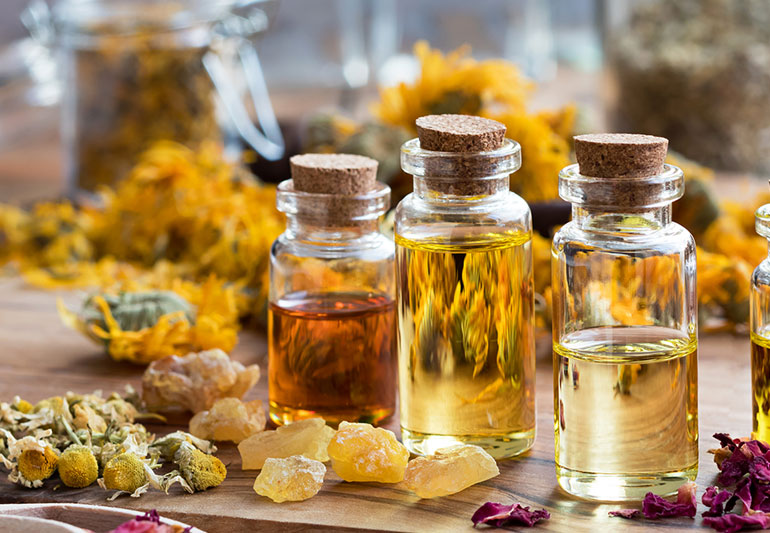
Benefits of aromatherapy and natural remedies
Aromatherapy offers a range of benefits, both physical and emotional. It can help reduce stress, promote relaxation, improve sleep quality, alleviate pain, and enhance overall well-being. Additionally, essential oils used in aromatherapy may have antimicrobial, anti-inflammatory, and antioxidant properties. By harnessing the power of nature, aromatherapy provides a natural and holistic approach to health and wellness.
Essential Oils
Definition and extraction of essential oils
Essential oils are volatile, aromatic compounds found in various parts of plants, including flowers, leaves, stems, bark, or roots. These oils are extracted using different methods, ensuring the preservation of their medicinal properties. Steam distillation is the most common method, where steam is passed through the plant material, causing the essential oil to evaporate and then condense into a liquid form.
Popular essential oils and their properties
Various essential oils are available, each with unique properties and potential benefits. Lavender oil, for example, is known for its calming and soothing effects, while peppermint oil is refreshing and can help alleviate headaches. Tea tree oil possesses antimicrobial properties and is often used in skincare products. Other popular essential oils include eucalyptus, lemon, chamomile, and rosemary, each with therapeutic qualities.
Safety considerations when using essential oils
While essential oils offer numerous benefits, using them safely and responsibly is critical. These concentrated plant extracts can be potent and cause adverse reactions if misused. It is crucial to dilute essential oils before applying them to the skin and perform patch tests to check for potential allergies. Pregnant women, children, and individuals with certain medical conditions should consult a healthcare professional before using essential oils.
Aromatherapy Techniques
Inhalation methods
Inhalation is one of the primary methods of using essential oils in aromatherapy. It involves the direct inhalation of aromatic compounds through the nose, where they can stimulate the olfactory system and impact the brain and emotions. This can be achieved by inhaling the scent of essential oils directly from the bottle, using a diffuser, or adding a few drops to a bowl of hot water for steam inhalation.
Topical application
Topical application involves applying essential oils directly to the skin, often diluted in a carrier oil. This allows the oils to be absorbed into the bloodstream, providing localized benefits. Massage compresses, and baths are common ways to topically apply essential oils. Following proper dilution guidelines is important, as well as avoiding using undiluted essential oils directly on the skin, as they can irritate or sensitise.
Diffusion and vaporization
Diffusion is a popular method of dispersing essential oils into the air, creating a pleasant and therapeutic atmosphere. Diffusers use mechanisms, such as ultrasonic vibrations or heat, to release the oils into the air as a fine mist. This method allows for continuous and controlled diffusion, making it ideal for creating a relaxing ambience at home or in therapeutic settings. Vaporization can disperse aromatic molecules into the air using techniques like steam inhalation or adding oils to hot water.
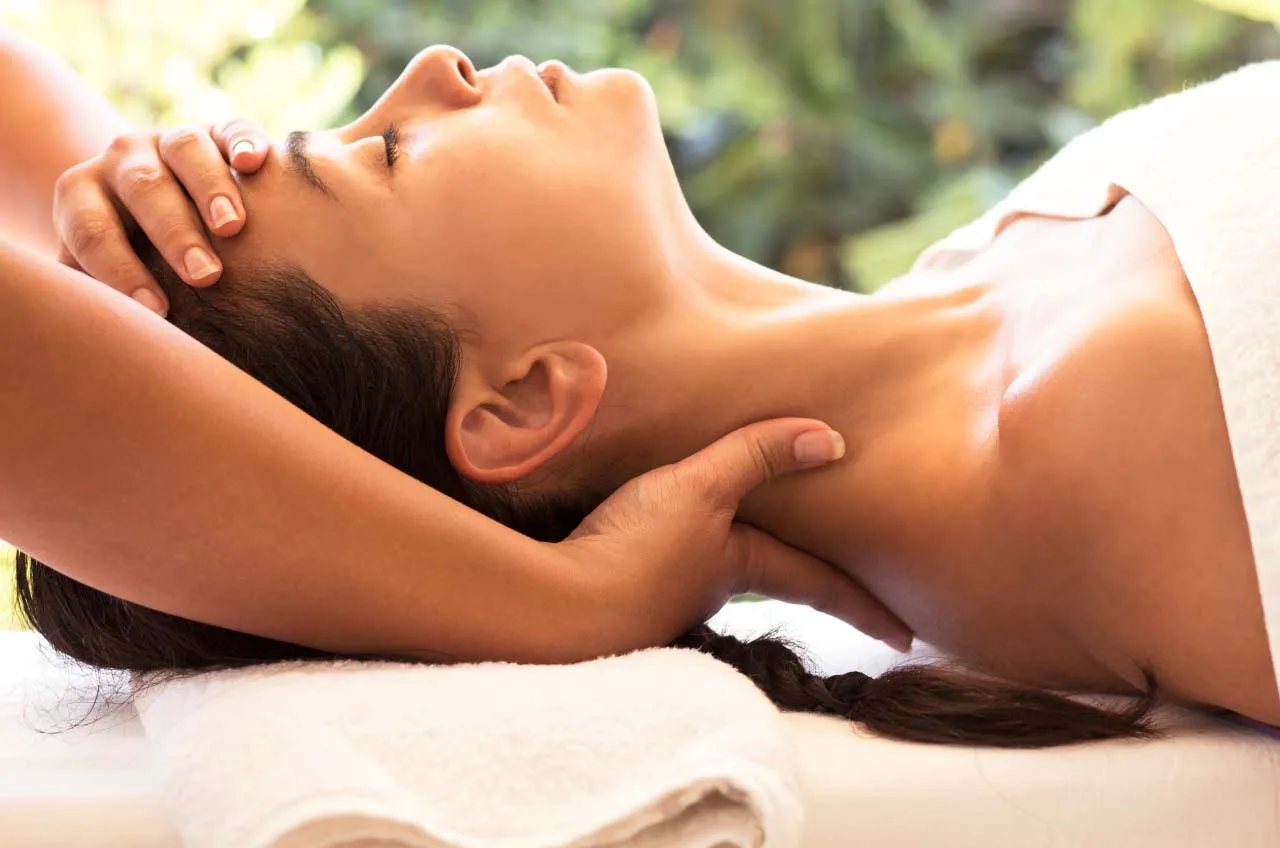
Essential Oils for Common Ailments
Relieving stress and anxiety
Stress and anxiety are common issues in today’s fast-paced world. Essential oils such as lavender, bergamot, chamomile, and ylang-ylang have calming properties and can help promote relaxation. These oils can be diffused, applied topically (adequately diluted), or added to bathwater to create a soothing, stress-relieving experience.
Easing headaches and migraines
Headaches and migraines can be debilitating, affecting daily life. Essential oils like peppermint, lavender, eucalyptus, and rosemary have analgesic and anti-inflammatory properties that may help alleviate headache symptoms. Applying a diluted blend of these oils to the temples, forehead, or back of the neck can provide relief and promote a sense of calm.
Promoting better sleep
Quality sleep is essential for overall well-being. Essential oils such as lavender, chamomile, cedarwood, and vetiver have soothing properties that can promote relaxation and improve sleep quality. These oils can be diffused in the bedroom, added to a bedtime bath, or applied topically (diluted) to the wrists or chest before sleep.
Boosting energy and focus
When you need a natural energy boost or improved focus, certain essential oils can help. Peppermint, rosemary, lemon, and eucalyptus oils have stimulating and invigorating properties. Inhaling these oils directly from the bottle or using them in a diffuser can provide a refreshing and revitalizing effect, helping to increase alertness and concentration.
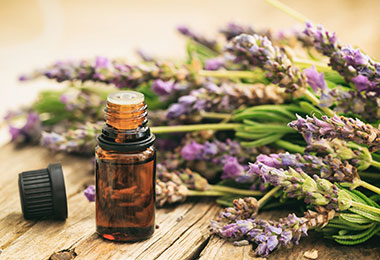
Natural Remedies with Essential Oils
Treating respiratory issues
Essential oils can relieve respiratory congestion, coughs, and cold symptoms. Eucalyptus, tea tree, peppermint, and lemon oils have expectorant and decongestant properties, making them useful in inhalation techniques. Steam inhalation with a few drops of these oils or using them in a diffuser can help clear the airways and promote easier breathing.
Soothing muscle aches and pains
Muscle aches and pains can be bothersome, whether from exercise, injury, or chronic conditions. Essential oils such as peppermint, lavender, eucalyptus, and ginger have analgesic and anti-inflammatory properties that can alleviate discomfort. Diluted oils can be massaged onto the affected areas to provide relief and relaxation.
Supporting digestion and gut health
Some essential oils can aid digestion and support gut health. Peppermint and ginger oils, for example, have carminative properties that can help relieve digestive issues such as bloating, indigestion, and nausea. After consulting a healthcare professional, you can dilute these oils and apply them to the abdomen or consume them in small amounts.
Enhancing skin care routines
Essential oils are commonly used in skincare due to their beneficial properties. Tea tree oil has antimicrobial and anti-inflammatory benefits, making it beneficial for acne-prone skin. Lavender and chamomile oils have soothing properties and can help calm irritated skin. You can dilute these oils in carrier oils or add them to facial cleansers, toners, and moisturizers to enhance your skincare routines.
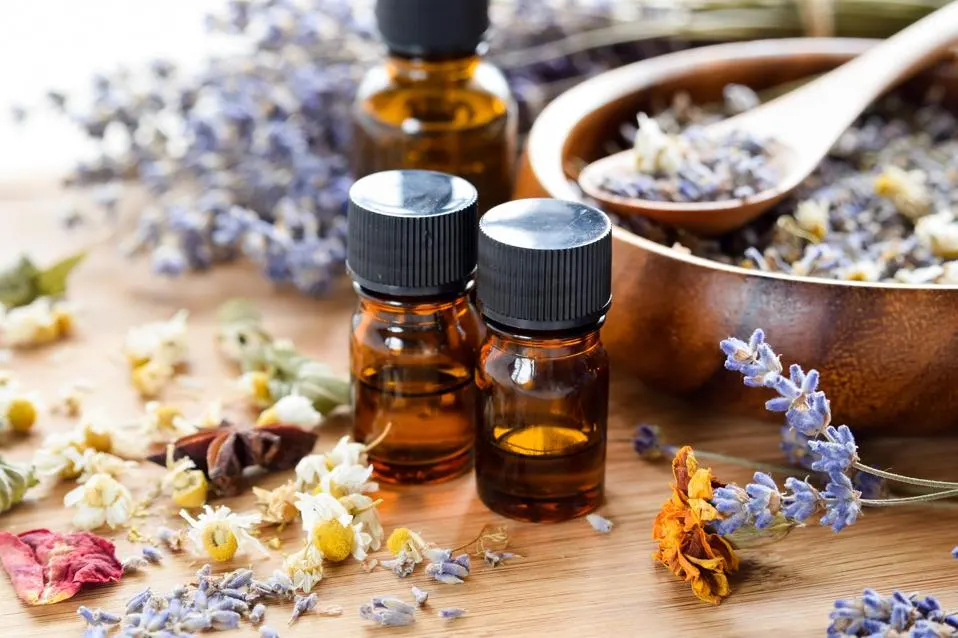
Creating a Personalized Aromatherapy Routine
Choosing the suitable essential oils
When creating a personalized aromatherapy routine, choosing essential oils that align with your needs and preferences is critical. Consider the desired effects, such as relaxation, focus, or energy, and select oils known for those properties. Experiment with different oils and blends to find what works best for you.
Blending and dilution techniques
Essential oils are highly concentrated and should be properly diluted before use. Carrier oils such as jojoba, sweet almond, or coconut oil can dilute essential oils for topical application. The recommended dilution ratio is typically 1-2% for adults, meaning one drop of essential oil per teaspoon of carrier oil. For diffusing, follow the instructions provided with your diffuser to determine the appropriate number of drops.
Incorporating aromatherapy into daily life
Aromatherapy can be seamlessly integrated into your daily routine. Consider diffusing essential oils in the morning to energize and uplift your mood. You can also create a calming atmosphere in the evening by diffusing oils known for relaxation. Adding a few drops of essential oil to your bathwater or using them in massage oils can enhance self-care rituals. Additionally, keeping a small bottle of diluted oil with you throughout the day allows for quick inhalation whenever needed.
Safety Precautions and Considerations
Patch testing and allergic reactions
Before using any essential oil topically, performing a patch test to check for potential allergic reactions or sensitivities is necessary. Apply a small amount of diluted oil to a small area of skin, such as the inner forearm, and observe for any adverse reactions for at least 24 hours. If redness, itching, or irritation occurs, discontinue using that oil.
Proper storage and handling of essential oils
To ensure the longevity and potency of your essential oils, it is crucial to store them properly. Please keep them in the dark glass bottles, away from direct sunlight and heat, as exposure to light and heat can degrade the oils. Store them in a cool, dry place, and tightly seal the bottles when not in use. Keep essential oils out of reach of children and pets.
Consulting a healthcare professional
While essential oils can provide many benefits, it is important to consult a healthcare professional before using them, especially if you have any underlying health conditions, are pregnant or nursing, or are taking medications. Avoid using essential oils as a substitute for medical treatment, and seek professional guidance to ensure their safe and appropriate use.
Conclusion
Incorporating essential oils into your life through aromatherapy and natural remedies can benefit your physical, mental, and emotional well-being. From relieving stress and anxiety to supporting natural remedies for common ailments, essential oils offer a natural and holistic approach to health and wellness. By understanding the properties of different oils, practising safe usage, and personalizing your aromatherapy routine, you can harness the power of nature to enhance your overall quality of life.
FAQs – Essential Oils for Aromatherapy and Natural Remedies
Q: Can I use essential oils directly on my skin?
Diluting essential oils before applying them to the skin is generally recommended. Undiluted essential oils can be harsh and may cause skin irritation or sensitization. Cutting them in a carrier oil helps ensure safe and effective use.
Q: Are essential oils safe for pets?
Some essential oils can be toxic to pets, especially cats and small animals. Researching and consulting with a veterinarian before using essential oils around pets is vital to ensure their safety.
Q: Can essential oils be ingested?
Approach ingesting essential oils with caution and only under the guidance of a qualified healthcare professional. Improper ingestion of essential oils can cause adverse effects due to their high concentration.
Q: How long do essential oils last?
The shelf life of essential oils varies depending on the type of oil and storage conditions. Generally, most critical oils last several years when stored correctly in dark glass bottles, away from heat and sunlight.
Q: Can essential oils replace medical treatments?
Do not use essential oils to replace medical treatments prescribed by healthcare professionals. While they can complement specific therapies, seeking appropriate medical advice for any health concerns or conditions is essential.

